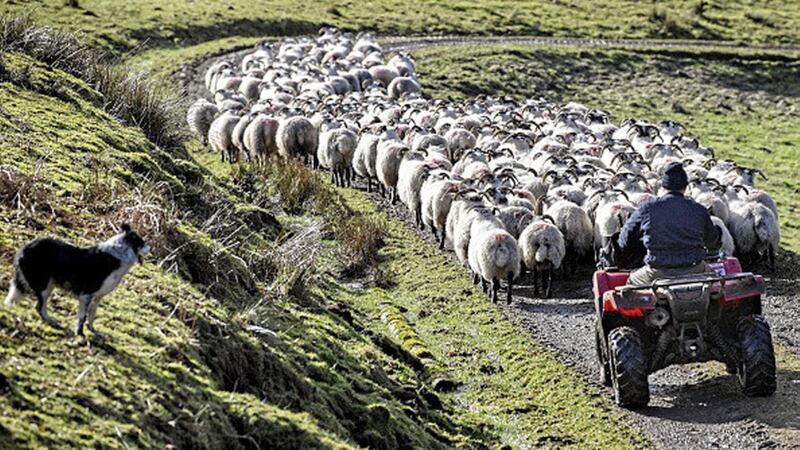The British government’s post-Brexit agriculture plans will have a “serious impact” on farms in Northern Ireland, MPs warned.
The government’s proposals will see money redirected from direct payments under the Common Agricultural Policy (CAP), which are based on the amount of land farmed, to a new system of paying farmers ‘public money for public goods’ – principally their work to enhance the environment and invest in sustainable food production.
The typically small farms in the north rely on subsidies for survival.
A Northern Ireland Affairs Committee report said: “The committee heard evidence that the UK government’s ‘public money for public goods’ proposal and its desire to improve farm efficiency, while broadly welcomed, was designed with England in mind and could have a serious impact on farms in Northern Ireland if the scheme is not modified to reflect the very different character of farming in Northern Ireland.
“The committee urges the government to revise its definition of public goods to include the survival of farms as ‘essential rural assets’, and to commit area payments beyond 2022, with small farms and those reliant on pasture and husbandry on marginal land particularly in mind.”
The committee chairman, Andrew Murrison, said ministers had not adequately addressed issues facing Northern Ireland farmers.
Read More:
- Clocks in north could be one hour out from London or Dublin if Brexit talks fail
- Dominic Raab says Brexit extension should only occur if backstop proposal is removed
- Brexit: Micheál Martin says priority is 'delivering stability' in Dublin government
- Brexit: Hundreds attend 'Rally for Remain'
“We are concerned that its uniqueness, challenges and vulnerabilities have not been fully hoisted in by ministers,” he said.
“We heard evidence about Defra’s [the UK government Department for Environment, Food & Rural Affairs] lack of engagement with Northern
Ireland’s civil service and with the sector.
“We were left with the impression of drift and delay at a critical time and an over-reliance on the much hoped for restoration of an executive.”
The chairman urged the UK government to provide clarity and confidence for the north’s agricultural sector by making plain how a post-Brexit agricultural policy for Northern Ireland will be devised if the political impasse continues into the new year.
The committee expressed disappointment about Defra’s “insufficient” approach to considering specific agricultural concerns in Northern Ireland and called for speedy action.
The predominance of smaller farms means that the sector is particularly reliant on direct financial support to maintain a steady income.
The committee expressed concern at Defra’s limited engagement with farmers in Northern Ireland.
Almost £900 million worth of food and live animals were exported to the Republic from Northern Ireland last year.
A no-deal could affect that trade.
Much of Northern Ireland’s agricultural workforce is drawn from the EU.
The committee called on the government to establish mechanisms to allow skilled workers access to Northern Ireland.
A Defra spokesperson said: “We are in close contact with counterparts in Daera [the Northern Ireland Department of Agriculture, Environment and Rural Affairs] on the implications for farmers as we leave the European Union, including fortnightly meetings at an official level.
“We also fully recognise the differences between the needs of Northern Ireland’s agriculture sector and that of other parts of the UK. That is why we support and embrace the principles of devolution.”









